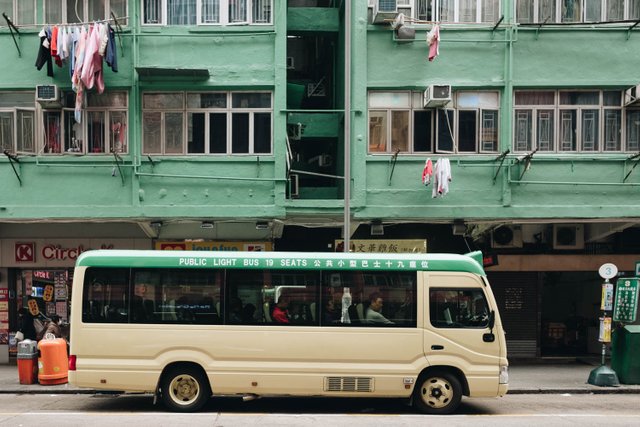Hong Kong: Underneath the Skyscrapers

When foreigners told me how much they loved Hong Kong, I was always at a loss. Did they mean they loved partying in Lan Kwai Fong? The delicious food? Or the misery clouding over the city?
Growing up, I knew Hong Kong had the most enchanting skyline even though I didn’t see much of anywhere else. I was so proud of my birthplace as a teenager. Coming back to Hong Kong as an adult, however, yielded a different perspective.
The streets in Hong Kong were a lot narrower than I remembered. People walked at such a nauseating speed that, I could stand in the middle of the street and felt completely invisible as a swarm of people rushing through and around me. Senior citizens strolled around painfully slow compared to the crowd, but they didn’t seem to live in the same dimension as everyone else. They, too, were invisible.
Then came the infamous subdivided units. A 75-sqft apartment… No, a 75-sqft human cage cost somewhere between $400 USD to $1200 USD a month, depending on the area. It’d fit exactly a mini bathroom, a bed, and a bedside table. How could people expect or define comfort in this kind of living environment?
Pearl of the Orient, what a proud nickname for a city so vibrant, yet so small and congested. Hong Kong’s iconic cityscape features 317 skyscrapers today, far outnumbering New York City’s at 257 and Dubai’s at 177. It’s an impressive number accompanied by a bitter irony: the abundance of high-rise buildings becomes a lure for people to jump to their own deaths.
In Hong Kong, youth suicide happens every 9.3 days on average, and at least half of these suicides involve jumping from a height. These statistics were meaningless until an old friend of mine became one of them. I didn’t know how to react to the news other than staring at the vivid reports of the tragedy online. The depth of his despair must have been more painful than the thought of leaping to a brutal death.
How much does one have to bear before making a deliberate decision to cease life once and for all? How ill is this society if a young adult’s suicide is nothing but another forgettable headline?
Hong Kong always tops the chart in terms of wealth and productivity as an international city. But all else is neglected in the face of economic progress: affordable housing, proper prenatal care, mental health resources, education. Even living space is at a dire scarcity. High pressures penetrate all aspects of life. The skyscrapers, unfortunately, are just the glorious facade of a deteriorating society.
CNN described mental illness in Hong Kong as a secret burden. Cultural stigma and the lack of resources have pushed too many people off the edges of the high-rises. On average, a city should have a ratio of 10 psychiatrists per 100,000 people. In Hong Kong, the ratio is 4.9 psychiatrists to 100,000, and a therapy visit costs almost $400 USD an hour. The ratio is reflective of the systematic imbalance in, not just mental health, but all fronts of the society.
The list of sociopolitical issues could go on without end, but who cares? Most of the people on this planet have their own cross to bear. Only my generation who grew up in this city would share the heaviness of its downfall. I now feel pain, instead of pride, as I watch my birth city eroding away.
I was the lucky one who escaped. As I kept reading about youth suicides in Hong Kong, I couldn’t help but think that it could have been me. My brutal death would have been reported and my bloody face would have been featured in the newspaper. I would have gained my 15 minutes of fame in yet another unsurprising headline. If I never had the chance to move to New York, it could have been me.
I was the lucky one who escaped.
*********************
Stay in touch: